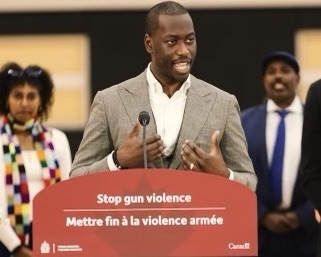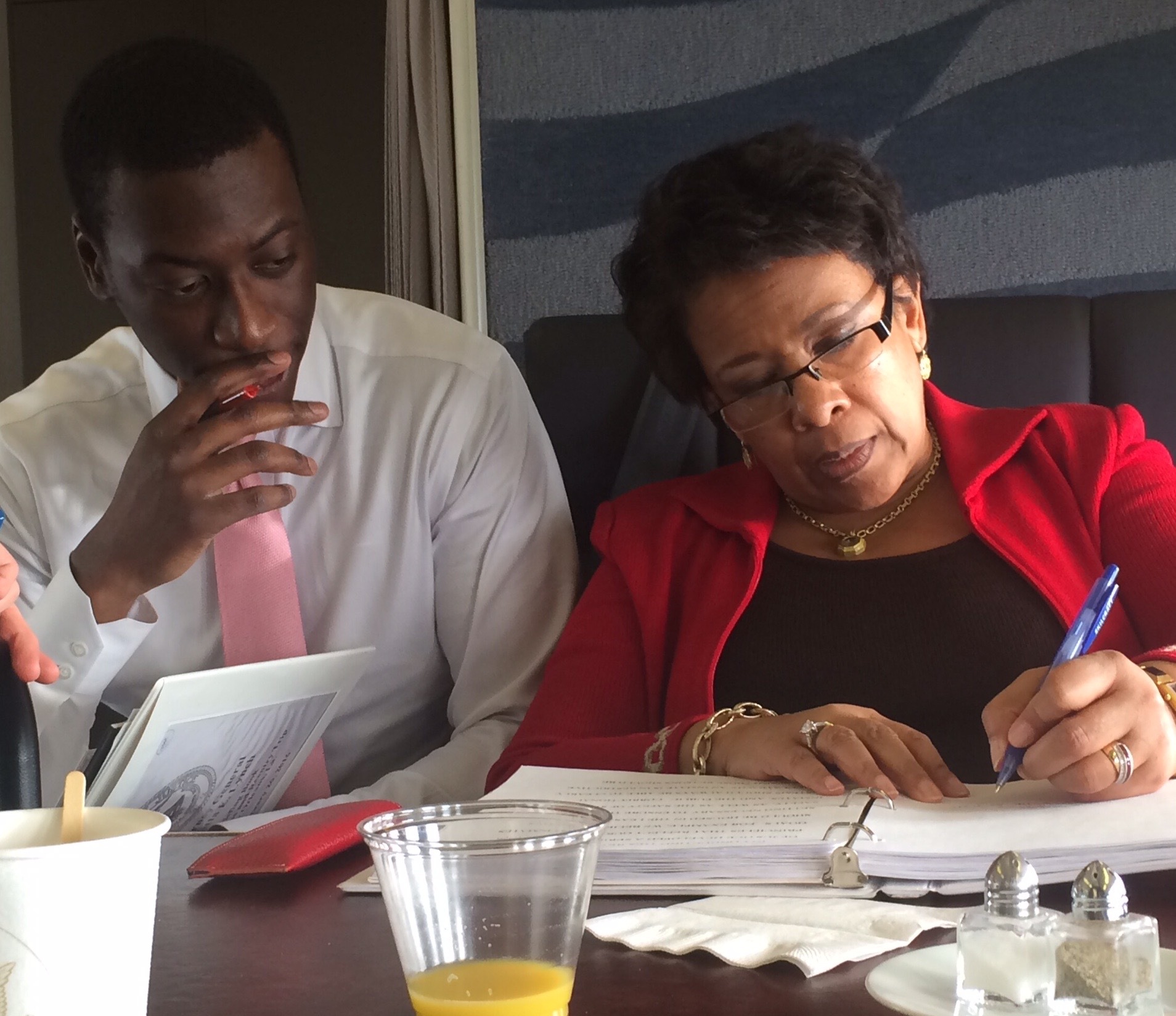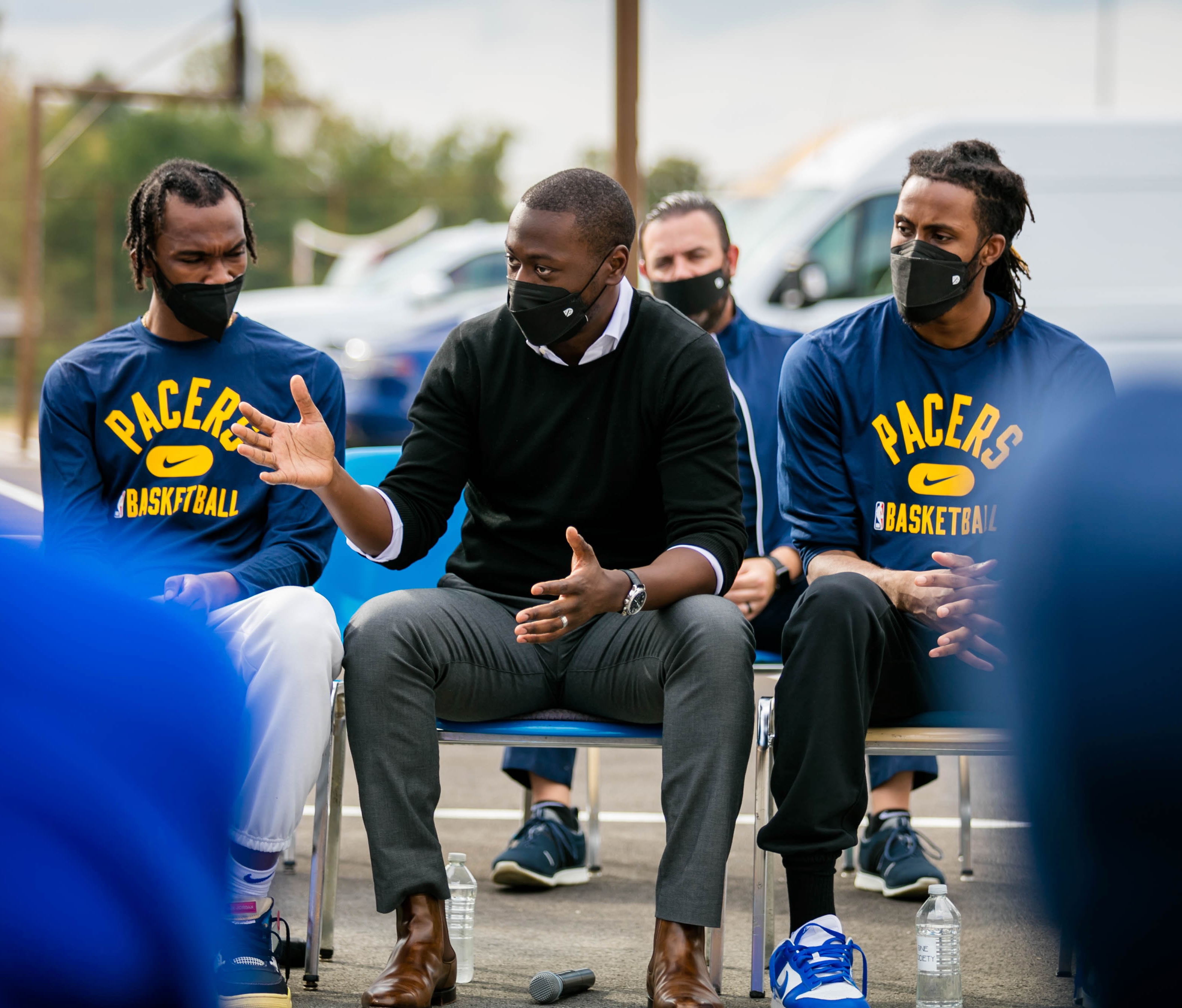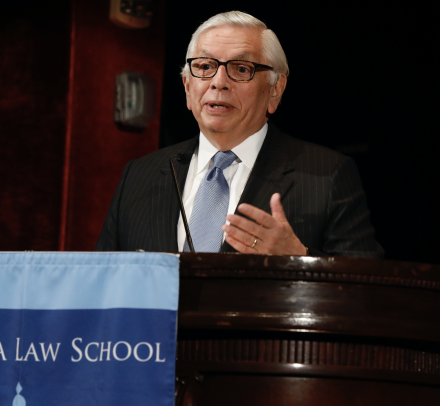How I Got Here: James Cadogan ’06
An eight-year veteran of former president Barack Obama’s administration, James Cadogan ’06 is now the executive director of the National Basketball Social Justice Coalition.
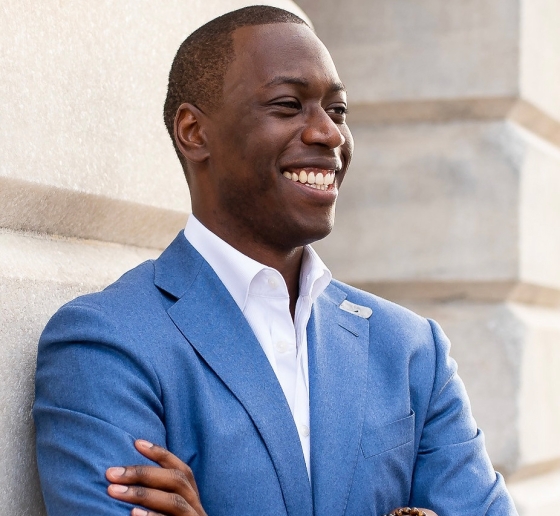
The NBA has a long history as a civic-minded and socially responsible sports league. In addition to NBA Cares and the NBA Foundation, the league community created the National Basketball Social Justice Coalition, a nonprofit organization supporting the NBA’s advocacy work to combat racial inequality and advance social justice. James Cadogan ’06 has led the coalition since 2021, following stints in private practice, politics, government, and the nonprofit sector (see “The Brief on James Cadogan,” below).
What makes the National Basketball Social Justice Coalition unique?
A commitment to racial justice, economic justice, and voting rights is built into the fabric of what the NBA family does. There are three main tools we can use in this space: programming and community engagement; philanthropy, through various foundations that operate in the NBA community; and public policy work. The coalition is responsible for the public policy piece—and that is one of the things that most sports entities and corporations don’t spend a lot of time on in the social justice context.
The coalition is a joint venture of the NBA’s league office, the National Basketball Players Association (NBPA), and the National Basketball Coaches Association (NBCA) and has a specific mission: to carry a social justice agenda forward in the legislative and policy space. That is new and different. The most important work we can do is lifting up and amplifying good policy solutions on our issues (criminal justice, voting rights, community safety, and policing reform) while working alongside government officials, frontline service workers, and civil society groups who’ve been in this fight a long time.
What was the impetus for establishing the coalition?
In the wake of the reckoning on racial justice that was happening in the U.S. and around the world in 2020, NBA players, like so many, were standing up and speaking out for what they believed, and they challenged all members of the NBA community to stand alongside them. What followed was an agreement between the league, the players’ association, and the coaches’ association to form this coalition, which serves as a vehicle for them to work on social justice issues together.
How did you become the coalition’s executive director?
I’ve been a basketball fan my whole life, and I was watching what was happening in the NBA from a distance. I had a background as a former Justice Department lawyer and was already in the nonprofit world focusing on criminal justice issues, so it was kind of a kismet moment that the coalition position was available, and I was able to throw my hat in the ring
What’s the process of establishing a new nonprofit?
You need a strong board, good personnel, infrastructure, operations, compliance functions, and all the usual pieces of the puzzle. In that way, we’re formally incorporated and operate like any other 501(c)(4) advocacy entity. We were building something new that needed to be nimble but also creating something representative of a well-established community and a set of global multinational brands. That’s something we are always aware of because basketball players and professional athletes have long used their voices to do good in the world, tracing back to Bill Russell, Kareem Abdul-Jabbar, Oscar Robertson, and so many others. It’s a weighty legacy. But we’re lucky because even as a new entity, in our “start-up” phase, we could rely on structural support from the NBA, NBPA, and NBCA.
You took a five-month hiatus from your job at Cravath, Swaine & Moore to work for Obama for America as the voter-protection co-director for Ohio. When did you become interested in the issue of voting rights?
That goes back to law school days and my thinking and learning about our political system. The idea of how we reshape and reform, create and manifest a government that actually works and is of, by, and for all the people ultimately comes down to voting rights. It is the first right of any functioning democracy. It’s a really complicated area of the law that I got to see up close when I worked at the U.S. Department of Justice [from 2012 to 2017].
The NBA chose to not play any games on Election Day in 2022. How did that decision come about?
In 2020, when everything was shut down due to COVID, people were social distancing and many were thinking about safe ways to vote. To help solve that problem, the NBA made arenas, where possible, available as polling sites. We had sites in about 23 different markets. In 2022, the question for the league was: “How does the NBA family build on that?” So the NBA and NBPA agreed that every single team would play a game on the day before the election—which had never previously happened. We were able to use that signature moment to message around the game and on TV, on digital and linear, to talk to folks about the importance of voting and getting out and making your voice heard in our democracy.
What are the National Basketball Social Justice Coalition’s current priorities?
Since Congress moves slowly, and federal policy and politics are a long game, maybe the most dynamic part of what we focus on is happening in statehouses across the country, where there are hundreds of bills addressing criminal justice reform, policing reform, voting rights, and community safety. Those are things we weigh in on in partnership with NBA teams and players, executives, coaches—folks who are committed to that work. So to be able to help NBA stakeholders as they find the right way to raise their voices and come together around solutions that are going to benefit people in their communities, that’s exciting.
You majored in English at Princeton. Why did you decide to go to law school?
Like so many others in college, I had no idea what I wanted to do with my life, but I did have an interest in politics, government, and history. The question I really wanted to answer (although I probably wouldn’t have articulated it this way at the time) was: “Why are our systems set up and structured the way they are?” When I was thinking about careers, the only logical thing that made sense to me was to explore that question more. I felt like law school would provide some of those answers.
What was the most important thing you learned at Columbia Law School?
Broadly speaking, the process of going to law school and working through that wringer helped sharpen my thinking, and it also sharpened my writing. Writing was something I liked to do as an English major, but I was a very “literary” sort of writer. Law school completely turned that on its head, forcing a more analytical lens, and that’s a really important brain change that helped me through the years.
A lot of the benefit of going to law school I found and saw after the fact. One of the things that I still continue to lean on to this day is that questioning the “why” of a structure, a system, an incentive, or a reason for a particular decision—especially when it comes to big public systems of government, influential private entities, and the forces they exert on the marketplace and people.
What was the highlight of your Columbia Law School experience?
I took an incredible course, the Prisoners and Families Clinic, with Philip Genty, who was an absolutely fantastic professor. That was the course that changed my life; there’s no two ways about it. We were student-advocates for clients who were currently incarcerated, and we provided them with education on family rights and also did some prep work for other clients before their parole hearings. It was a turning point for me: understanding that what I really wanted to get out of law school was how to make a difference in the world, and how what I was learning in an academic context would apply to real people. That year of working under Phil’s guidance—he was an extraordinarily gentle but firm teacher and mentor—planted the seed that regardless of what I am doing, there is always something that I can do for the public good, and something that I can do that will affirmatively advance justice, even if it’s only in a small way. That was really a big spark for what I’ve done since.
In your office, there’s a framed warm-up jacket hanging on the wall. What is the story behind it?
It’s a Michael Jordan shooting-shirt replica from the 1992 Dream Team. My basketball love goes back to 1991–1992, and the shirt is a reminder of what inspired me when I was very young, and everything that Jordan did on the court—his level of passion, excellence, and rigor. That’s something that I’ve thought a lot about in my life, so it’s nice to be able to put it up on the wall now that I am part of the NBA family.
This interview has been edited and condensed.
